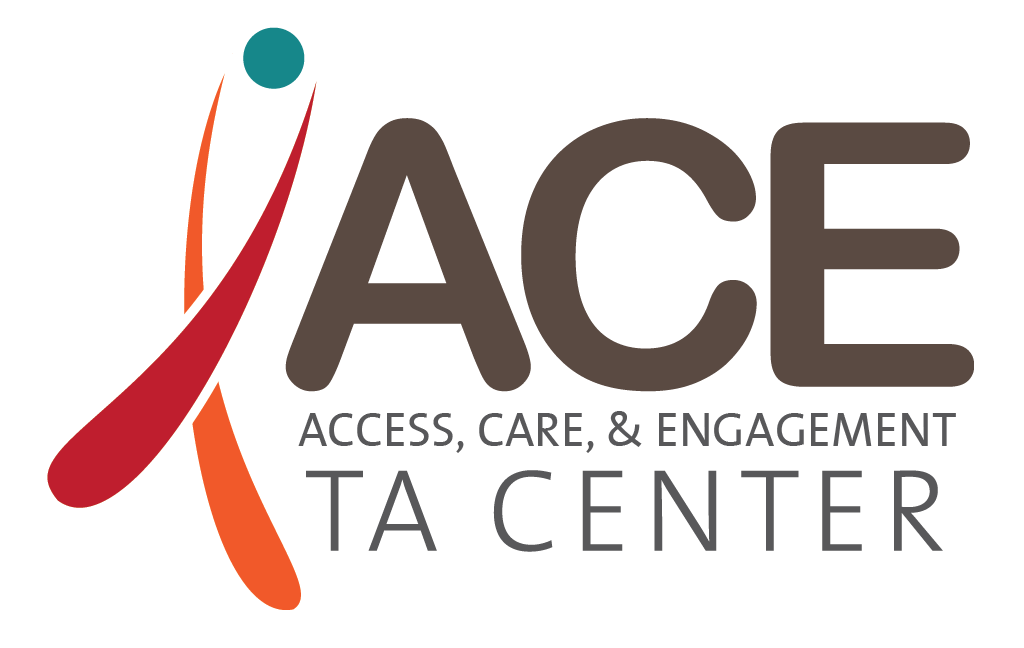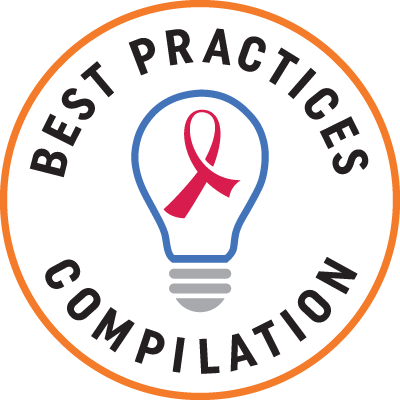Medical & Support Services
A sampling of HIV clinical training resources (e.g., guidelines, clinical tools) are featured here. For more, see the AIDS Education and Training Center's (AETC) National Coordinating Resource Center (NCRC) for training (e.g., National HIV Curriculum, webinars); consultations (e.g., National Clinician Consultation Center, access to regional experts); library (e.g., guidelines, training tools, and more, organized by topic); and community (e.g., newsletters).
The AETC Program is the clinical training arm of HRSA's Ryan White HIV/AIDS Program.
Website
- AETC National Coordinating Resource Center (NCRC)
- National Clinician Consultation Center
- U.S. Department of Health and Human Services
Best Practices
- Boston University School of Social Work Center for Innovation in Social Work and Health
- HRSA Bureau of Primary Health Care (BPHC), Centers for Disease Control and Prevention (CDC)
Technical Assistance
 Capacity building for the RWHAP community to navigate the changing health care landscape and help people with HIV to access and use their health coverage to improve health outcomes. Project period: 2022-2025.
Capacity building for the RWHAP community to navigate the changing health care landscape and help people with HIV to access and use their health coverage to improve health outcomes. Project period: 2022-2025.- The central hub of the AETC Program, the clinical training arm of the RWHAP, through HIV curricula, technical support to regional AETCs on practice transformation and best practices, and housing of all AETC-developed tools for HIV clinical staff. Project period: 2019-2024.
Clinician consultation on HCV management, HIV management, perinatal HIV/AIDS, pre-exposure prophylaxis (PrEP), post-exposure prophylaxis, substance use. Project period: 2016-2025.
- The NHC provides ongoing, up-to-date information needed to meet the core competency knowledge for HIV prevention, screening, diagnosis, and ongoing treatment and care to healthcare providers in the United States. Project period: 2020-2022.
 Platform for RWHAP Part D recipients to increase the delivery of care innovations; increase the skills of staffing working with women, infant, children and youth; and support partner collaboration for dissemination of best practices.
Platform for RWHAP Part D recipients to increase the delivery of care innovations; increase the skills of staffing working with women, infant, children and youth; and support partner collaboration for dissemination of best practices.- Assessment of how, where, and why dissemination products are accessed and used, as well as the utility and performance of the products created under SPNS- and TA-funded initiatives. Project period: 2022-2025.
- The AETC Program offers clinician education and tailored capacity-building assistance. Project period: 2019-2024.
 Initiative documenting best practice strategies and interventions that have been shown to improve HIV outcomes in a "real world" setting and can be replicated by other programs. Project period: 2021-2024.
Initiative documenting best practice strategies and interventions that have been shown to improve HIV outcomes in a "real world" setting and can be replicated by other programs. Project period: 2021-2024.
News & Updates
Few Get Needed Opioid Use Disorder Treatments
PrEP's 12th Anniversary
Keeping Up-to-Date on Mpox
Keeping Track of Medicaid and Medicare: CMS Roundup
Need to drill down further?
Explore the sub-topics of this category